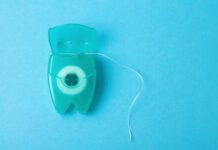Maintaining good oral health is important for everyone. However, women experience unique factors that can impact their dental health. Women’s oral health is influenced by various biological and hormonal changes that occur throughout their life stages. Factors like hormonal fluctuations, pregnancy, menstruation, menopause, and oral contraceptives can all have a significant impact on oral health. In this blog post, we’ll discuss the most common factors that have an impact on women’s oral health and how to maintain a healthy smile despite them.
Hormonal Changes
Hormonal changes have a significant impact on women’s oral health, which can result in symptoms like swollen gums, bleeding gums, salivary gland dysfunction, and dry mouth. During puberty, menstruation, and pregnancy, hormonal fluctuations can cause an increase in gum sensitivity and inflammation. It is essential to maintain regular brushing and flossing to prevent plaque buildup during these times. However, brushing too hard can harm the gums, leading to gingivitis, so it’s best to use a soft-bristled brush.
Pregnancy
Pregnancy has a significant impact on women’s oral health, and oral hygiene plays an essential role in maintaining a mother’s overall health and the health of the developing baby. During pregnancy, an increase in hormones can lead to increased blood flow to the gums, making them more sensitive and likely to bleed. Regular check-ups and cleanings are essential to ensuring the health of the mother and the baby.
Menopause
Menopause can also have adverse effects on oral health. The decrease in estrogen during menopause can increase the risk of developing gum disease and tooth loss. Women should maintain regular oral examinations and cleanings to prevent or identify any issues.
Lifestyle Factors
Lifestyle factors, like smoking and diet, can also impact women’s oral health. Smoking increases the risk of developing gum disease and tooth loss, while a high-sugar diet can increase the likelihood of cavities. Women should try to maintain a healthy diet and lifestyle, get enough sleep, avoid tobacco use, limit alcohol consumption, and practice good oral hygiene.
Women’s oral health should be a priority for every woman. Hormonal fluctuations, pregnancy, menopause, and oral contraceptives can have significant impacts on oral health, but maintaining good oral hygiene and regular check-ups can protect against any damage. Women should aim to improve their dental health by incorporating healthy habits like good nutrition, daily brushing and flossing, and avoiding smoking and excessive alcohol consumption. By following these steps, women can maintain a healthy smile throughout their life stages.









